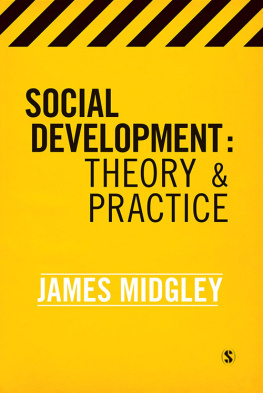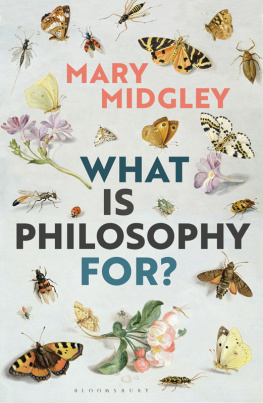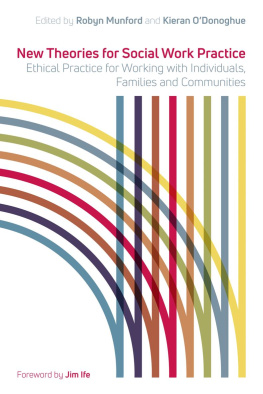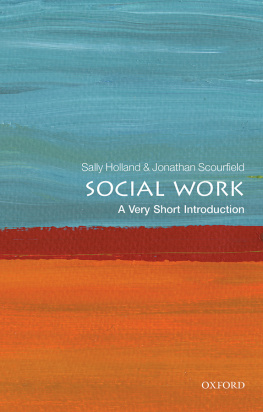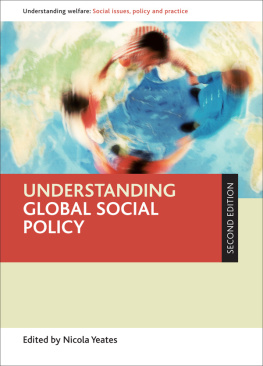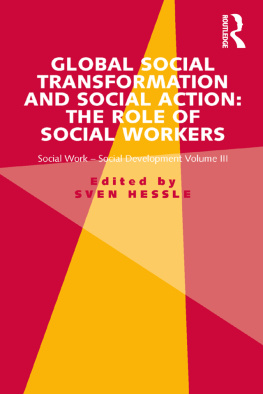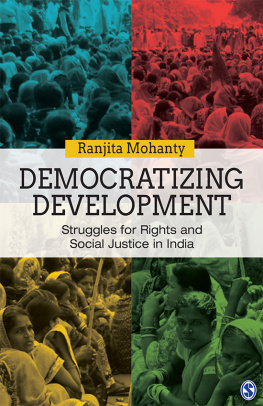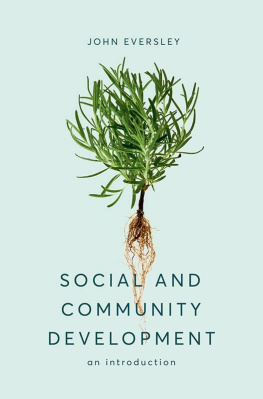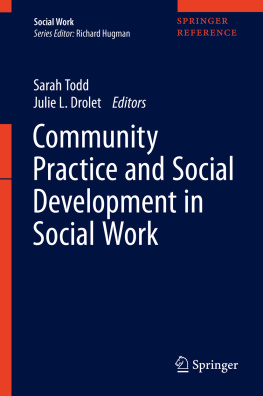

SAGE has been part of the global academic community since 1965, supporting high quality research and learning that transforms society and our understanding of individuals, groups and cultures. SAGE is the independent, innovative, natural home for authors, editors and societies who share our commitment and passion for the social sciences.
Find out more at: www.sagepublications.com


James Midgley 2014
First published 2014
Apart from any fair dealing for the purposes of research or private study, or criticism or review, as permitted under the Copyright, Designs and Patents Act, 1988, this publication may be reproduced, stored or transmitted in any form, or by any means, only with the prior permission in writing of the publishers, or in the case of reprographic reproduction, in accordance with the terms of licences issued by the Copyright Licensing Agency. Enquiries concerning reproduction outside those terms should be sent to the publishers.
Library of Congress Control Number: 2013933374
British Library Cataloguing in Publication data
A catalogue record for this book is available from the British Library
ISBN 978-1-4129-4777-0
ISBN 978-1-4129-4778-7 (pbk)

SAGE Publications Ltd
1 Olivers Yard
55 City Road
London EC1Y 1SP
SAGE Publications Inc.
2455 Teller Road
Thousand Oaks, California 91320
SAGE Publications India Pvt Ltd
B 1/I 1 Mohan Cooperative Industrial Area
Mathura Road
New Delhi 110 044
SAGE Publications Asia-Pacific Pte Ltd
3 Church Street
#10-04 Samsung Hub
Singapore 049483
Editor: Natalie Aguilera
Editorial assistant: James Piper
Production editor: Katie Forsythe
Copyeditor: Sarah Bury
Proofreader: Sarah Cooke
Indexer: Silvia Benvenuto
Marketing manager: Sally Ransom
Cover design: Francis Kenney
Typeset by: C&M Digitals (P) Ltd, Chennai, India
Printed in India at Replika Press Pvt Ltd
To friends and colleagues, and all who are dedicated to achieving social development around the world.
ABOUT THE AUTHOR
James Midgley is the Harry and Riva Specht Professor of Public Social Services and Dean Emeritus at the University of California, Berkeley. Originally from South Africa, he studied at the University of Cape Town and the London School of Economics and held academic appointments at both universities before moving to the United States. He has published widely on issues of social development, social policy, social work and international social welfare. His major books include Professional Imperialism: Social Work in the Third World, Heinemann, 1981; Social Security, Inequality and the Third World, Wiley, 1984; Comparative Social Policy and the Third World, Harvester, 1987 (with Stewart MacPherson); The Social Dimensions of Development: Social Policy and Planning in the Third World, Gower, 1989 (with Margaret Hardiman); Social Development: The Developmental Perspective in Social Welfare, Sage, 1995; Social Welfare in Global Context, Sage, 1997 and Social Policy for Development, Sage, 2004 (with Anthony Hall). In addition, he has edited many books on social policy, international social welfare and social development. Among the most recent are Social Work and Social Development, Oxford University Press, 2010 (with Amy Conley); Social Policy and Poverty in East Asia: The Role of Social Security, Routledge, 2010 (with K. L. Tang); Grassroots Social Security in Asia, Routledge, 2011 (with Mitsuhiko Hosaka); and Colonialism and Welfare: Social Policy and the British Imperial Legacy, Edward Elgar, 2011 (with David Piachaud). He is a Fellow of the American Academy of Social Work and Social Welfare and holds Honorary Professorial appointments at the University of Johannesburg in South Africa, Nihon Fukushi University in Japan, Sun Yat-sen University in China and the Hong Kong Polytechnic University.
ACKNOWLEDGEMENTS
Over the last 50 years, social development has emerged as a distinctive field of practice and academic enquiry. Although primarily focused on real-world activities such as alleviating poverty, mobilising local people for community projects, promoting asset accumulation and fostering microenterprises, it has been informed by research and theoretical ideas. Academic contributions to social development draw on a long intellectual legacy that can be traced back to ancient social thought, the analyses of scholars such as Marx, Hobhouse and Veblen, as well as more recent contributions from development economists such as Myrdal, Seers and Sen among others. They have also been influenced by community practitioners and activists who have played a major role in shaping social development practice. More recent innovations in microenterprise and similar activities have also been associated with the field. These diverse influences provide conceptual frameworks as well as an empirical base for practice. As this book hopes to show, social development practice and theory are closely related.
I have been greatly inspired by those whose ideas and research agendas have informed social development and had a significant impact on practice. I have drawn liberally on their contributions and sought in this book to provide a comprehensive overview that I hope will be particularly useful to students who plan to work in social development settings. Since much of the literature is fragmented, I hope that my attempt to summarise the major contributions that have been made over the years to both theory and practice will also be helpful. In addition, I hope that the normative framework I offer will be relevant to those who are committed to promoting social development. Although I do not expect that my approach will be universally commended, its pragmatism and derivation from social democratic institutionalism may be congenial to practitioners and scholars alike who recognise that social progress requires an ongoing process of struggle to mobilise different institutions, practice strategies and agents and to secure power for this purpose. As I will argue, the need to utilise the power and resources of the state for development is paramount.
The normative perspective offered here has been informed by my own teachers, including Richard Titmuss and Brian Able-Smith at the London School of Economic, who made a huge contribution to formulating a social democratic framework for social policy in Britain and other countries and who mentored me as a student and young academic. I also acknowledge the help I received from Howard Glennerster and Bob Pinker. I am fortunate to collaborate and maintain close links with colleagues at the LSE, particularly David Piachaud and Tony Hall. Special thanks to John Wilkes of the LSE for being so hospitable and accommodating whenever I visit London.
Although I have used the social democratic framework, my experience of living and working in the developing world has prompted me to adapt its insights to very different social, economic and cultural realities. Many friends and colleagues in Africa, Asia and other parts of the Global South have engaged me on so many occasions in stimulating debates about how this conceptual framework does or does not relate to social development theory and practice in their own countries. I am particularly grateful to members of the International Consortium for Social Development who encouraged my work. The organisation has attracted members from all over the world, and I am honoured to count many as friends.
Next page
